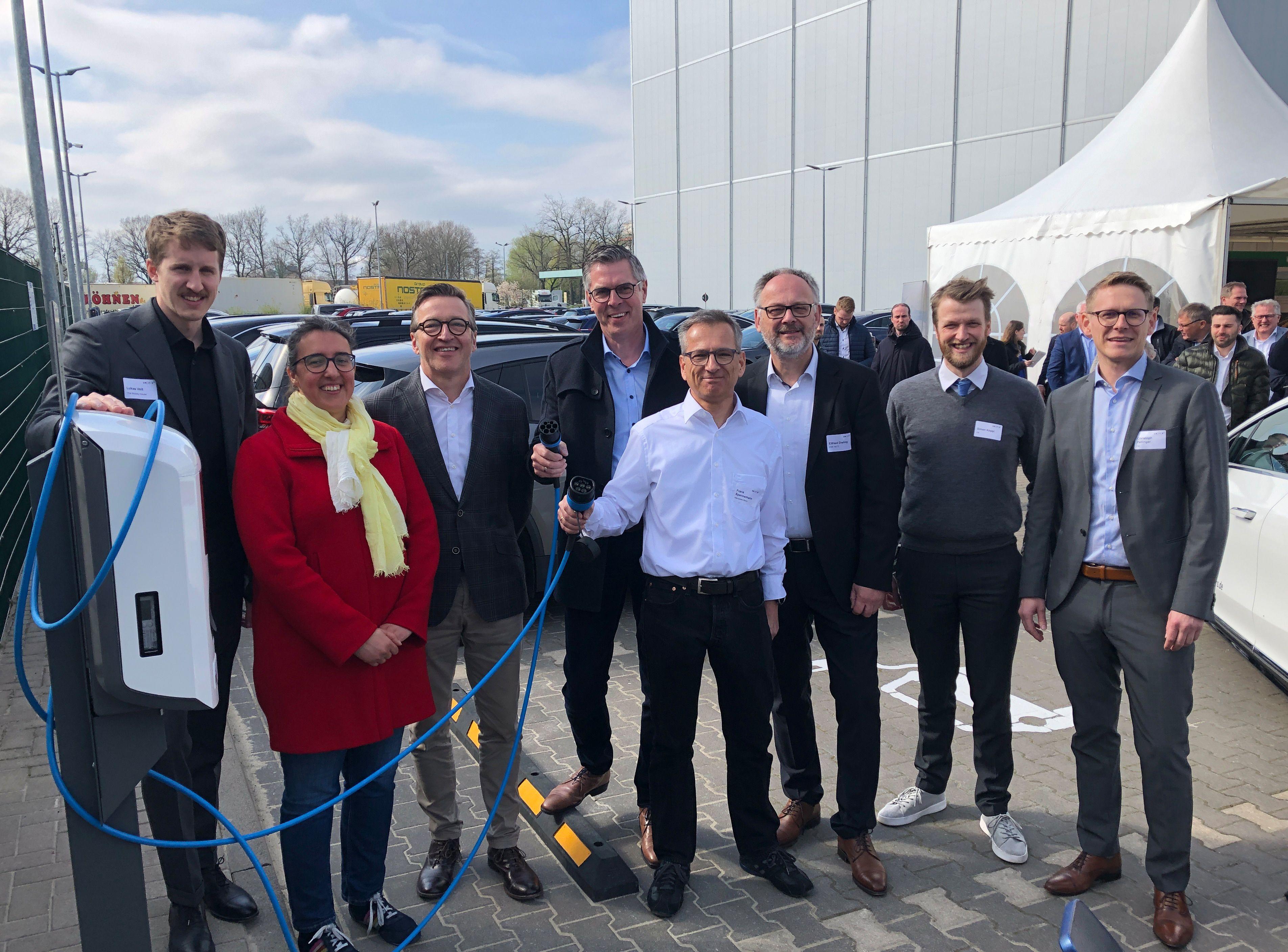As part of unIT-e², the project partners are investigating the market-optimised and simultaneously grid-serving charging of electric vehicles in various use cases. Employees of the Essen-based company Wernsing Feinkost are testing the various charging concepts with a total of ten vehicles in their daily working life. Anka Dobslaw, State Secretary in the Lower Saxony Ministry for the Environment, Energy and Climate Protection, now officially launched the field trial together with the project partners.
The concrete use cases that will be tested in the coming months include:
- optimised charging with simultaneous consideration of grid restrictions
- load shifting during peak load periods with a variable electricity tariff including a performance price, and
- the specification of power at the grid connection point by the grid operator in the event of grid bottlenecks.
unIT-e² mobilizes the digital energy transition
The unIT-e² project, funded by the Federal Ministry of Economics and Climate Protection (BMWK), has set itself the goal of intelligently and securely integrating electric mobility into existing and future infrastructures in order to meet the transformation of the energy system. A total of 29 project partners from the automotive and energy industries, IT and charging infrastructure as well as science are developing future-proof solutions for interoperable charging concepts for electric vehicles in four implementation clusters across Germany. In the north-western Harmon-E cluster, where the nine-month field trial is now being conducted, the focus is on the harmonious interaction of the overall system. Further information is available at here.
